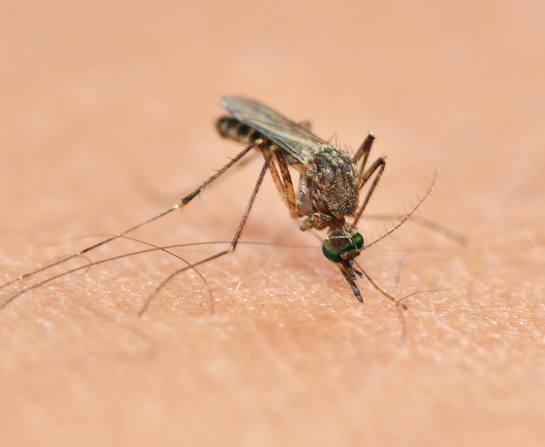Our Brains are at Risk!
April 28, 2022 Return

What exactly is Japanese encephalitis?
Encephalitis is a condition, in which the brain becomes inflamed due to an allergy reaction or infection. Japanese encephalitis (JE) is caused by a viral infection. This disease got its name from the fact that it was first documented in Japan in 1871.
Who is at risk of JE?
According to the World Health Organization (WHO), there are nearly 68,000 clinical cases of JE every year. It is said that more than 3 billion people in the 24 countries in the WHO South-East Asia and Western Pacific regions face the risk of JE transmission. Children are most affected when it comes to this disease.1
In Asia, there are 30,000 to 50,000 cases reported each year, and 25-30% of these cases are fatal, while half the survivors suffer from severe nerve and brain-related problems.
(Map taken from http://wwwnc.cdc.gov/travel/yellowbook/2016/infectious-diseases-related-to-travel/japanese-encephalitis)
What are the symptoms of JE?
Infected people rarely show symptoms. However, 1-in-250 infections can lead to a severe form of the disease.1
This person would experience rapid onset of high fever along with seizures, headache, disorientation and neck stiffness. Coma, spastic paralysis and even death may occur. It is said that up to 30% of people who experience this severe form of disease would die, while of those who survive, 20-30% would suffer from permanent problems related to their intellect, behaviour and nerve function, such as paralysis, loss of speech and recurrent seizures.1
If you suspect that you or a loved one has JE, see a doctor immediately.
How does one catch JE?
The JE virus can be transferred from pigs and water birds (such as egrets and herons) to humans. The Culex mosquito would carry the JE virus when it feeds on an infected animal. When the mosquito feeds on a person, it can pass the virus to that person.1
Like many mosquito-borne diseases, JE may be more prevalent during or after rainy seasons, especially in rural areas where people live close to animals that can host the JE virus.
Humans cannot pass the virus to one another.
Why are pigs such a matter of concern when it comes to JE?
This is because pigs can breed quickly and produce many offspring that are susceptible to JE. When infected, pigs also tend to develop high concentrations of the JE virus in their blood. This is why pig farms are set up as far away from towns and villages as possible, and pigs infected with JE have to be eliminated during an outbreak.
Will other animals be able to catch JE?
Various domestic animals can also catch JE. However, the World Organisation for Animal Health (OIE) published a technical card on JE which states that horses and donkeys are “dead end hosts” for the virus (they cannot spread the virus to people), while domestic animals such as dogs, cats and cattle “likely do not contribute to [the] spread [of JE]”.
How is JE treated?
To date, we have not found a cure for JE. Treatment revolves around providing relief and stabilizing the symptoms. When it comes to JE, prevention is definitely the more preferable option to cure!
References:
[1] World Health Organization. Japanese Encephalitis. Retrieved on Nov 3, 2015 from http://www.who.int/mediacentre/factsheets/fs386/en/
[2] See C Wong, et al. (2008). A decade of Japanese encephalitis surveillance in Sarawak, Malaysia: 1997–2006. Trop Med Int Health. Jan;13(1):52-5. doi: 10.1111/j.1365-3156.2007.01967.x.
[3] Erlanger TE, Weiss S, Keiser J, Utzinger J, Wiedenmayer K. (2009). Past, present, and future of Japanese encephalitis. Emerg Infect Dis Retrieved on Nov 3, 2015 from http://wwwnc.cdc.gov/eid/article/15/1/08-0311
[4] Centers for Disease Control and Prevention. (2010). Japanese encephalitis vaccines: recommendations of the Advisory Commitee on Immunization Practices (ACIP). Morbidity and Mortality Weekly Report, 59, 2.
[5] Vythilingam, I, et al. (1997). Abundance, parity, and Japanese encephalitis virus infection of mosquitoes (Diptera:Culicidae) in Sepang District, Malaysia. J Med Entomol. May;34(3):257-62.
[6] World Organisation for Animal Health. Japanese Encephalitis. Retrieved on Nov 4, 2015 from http://www.oie.int/fileadmin/Home/eng/Animal_Health_in_the_World/docs/pdf/Disease_cards/JAPANESE_ENCEPHALITIS.pdf
If you like this article, do subscribe here.
